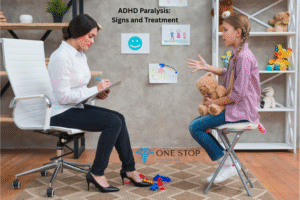It’s no secret that therapy can be expensive. But what if I told you that it could be worth every penny? In this article, I’ll be discussing how therapy can help with mental health disorders and why it’s such an important tool for those struggling with their mental health.
What is Therapy?
Therapy, also known as psychotherapy or counseling, is a process of discovering and understanding your thoughts, feelings, and behaviors to improve your mental health. It can be an incredibly effective treatment for mental health disorders, providing you with the tools you need to manage your symptoms and improve your overall well-being.
If you’re considering therapy for a mental health disorder, it’s important to understand what it is and how it can help. Therapy is a process of exploring your thoughts, feelings, and behaviors with a trained mental health professional. The therapist will help you understand your symptoms and develop coping strategies to improve your mental health.
Therapy can be an effective treatment for many mental health disorders, including anxiety, depression, post-traumatic stress disorder (PTSD), eating disorders, and more. It can help you develop healthy coping mechanisms, work through difficult emotions, and make positive changes in your life. If you’re struggling with a mental health disorder, consider talking to a therapist about how therapy could help you..
The different types of therapy
Most people think of therapy as a way to address mental health disorders, but many different types of therapy can be helpful for other issues. Some common types of therapy include:
Cognitive behavioral therapy: This type helps people to change negative thinking patterns and behaviors that are contributing to their mental health disorder.
Interpersonal therapy: This type of therapy focuses on helping people improve their relationships with others. It can be helpful for people who have disorders like anxiety or depression, which can be made worse by social isolation.
Family therapy: This type can help to improve communication and problem-solving skills within a family. It can be helpful for families dealing with a mental health disorder, as well as other issues like substance abuse or conflict.
Group therapy: This involves meeting with other people who are dealing with similar issues. It can be helpful to share experiences and support each other in recovery.
The benefits of therapy
If you’re struggling with a mental health disorder, know that you’re not alone. Millions of Americans suffer from mental health disorders, and many of them find relief through therapy.
Therapy can provide an outlet for you to express your feelings and work through your problems in a safe and supportive environment. In therapy, you’ll learn new coping and problem-solving skills that can help you manage your disorder. You may also explore the root causes of your disorder and develop a better understanding of yourself.
Therapy can be an important part of your treatment plan, whether you have a diagnosed mental health disorder or are struggling with stress, anxiety, or other issues. If you’re considering therapy, here are some things to keep in mind:
· Therapy is confidential. Whatever you discuss in therapy stays between you and your therapist.
· Therapy is typically short-term. Most people see a therapist for a few months to work on specific goals.
· Therapy can be expensive. If cost is a concern, there are many options available, such as sliding-scale fees or insurance coverage.
· Therapy requires effort. For therapy to be successful, you need to be willing to participate in the
How does therapy help with mental health disorders?
Choosing a therapist is an important decision, but how does therapy help with mental health disorders?
Therapy can help people with mental health disorders in several ways. It can provide them with a space to talk about their experiences, help them to understand their thoughts and feelings, and teach them coping and problem-solving skills. Therapy can also help people to build self-esteem and confidence, and to develop healthier relationships.
The different types of mental disorders
From anxiety and depression to PTSD and bipolar disorder, mental health disorders come in many different forms. And while each type of disorder comes with its own unique set of symptoms, there are some commonalities among them. Mental health disorders can often be accompanied by feelings of isolation, hopelessness, and overwhelming stress. But despite how difficult these disorders can be to manage, there is hope.
Therapy is an effective treatment for mental health disorders. In therapy, you can work with a trained professional to identify the root cause of your disorder and develop a plan to address it. therapy can also provide you with the tools and support you need to manage your symptoms and improve your overall well-being. If you’re struggling with a mental health disorder, don’t hesitate to reach out for help.
What are the different types of therapy?
Psychotherapy, also known as “talk therapy,” is a process focused on helping you heal from mental health disorders and improve your life. It can be an incredibly effective treatment for a wide variety of issues, including depression, anxiety, post-traumatic stress disorder (PTSD), and more.
There are many different types of psychotherapy, each with its unique approach. Some of the most common types of therapy include:
Cognitive-behavioral therapy: This type of therapy focuses on helping you identify and change negative thought patterns and behaviors that contribute to your mental health disorder.
Interpersonal therapy: This type of therapy focuses on helping you improve your relationships and communication skills.
Psychodynamic therapy: This type of therapy focuses on exploring the unconscious mind and resolving past traumas.
Humanistic therapy: This type of therapy focuses on your personal growth and self-development.
No matter what type of psychotherapy you choose, the goal is to help you heal emotionally and mentally so you can live a happier, healthier life.
Who can benefit from therapy?
If you’re struggling with a mental health disorder, therapy can be an incredibly beneficial tool. In therapy, you’ll work with a mental health professional to identify and manage the root causes of your disorder. Through therapy, you can also learn healthy coping mechanisms and develop positive coping strategies.
Therapy can be helpful for people of all ages, genders, and backgrounds. If you’re feeling overwhelmed, confused, or hopeless, therapy can provide the support and guidance you need to start feeling better.
How to find a therapist?
If you’re struggling with a mental health disorder, therapy can be a great option for treatment. Contact OneStopPsych today to learn more about our psychiatric and therapy services. Or Call For Free Consultation – (754) 270-6322. Our professional psychiatrists and therapists can help you with your specific needs.
Address: 8910 Miramar Pkwy, Office 309G, Miramar, FL 33025




